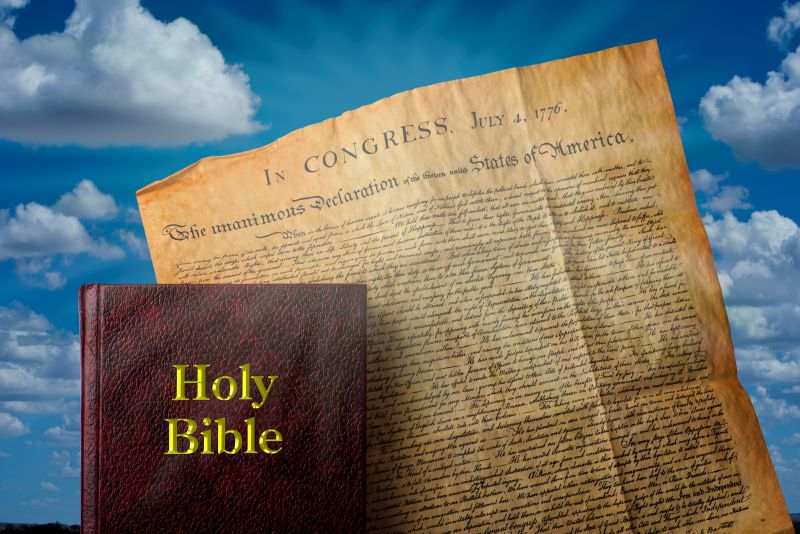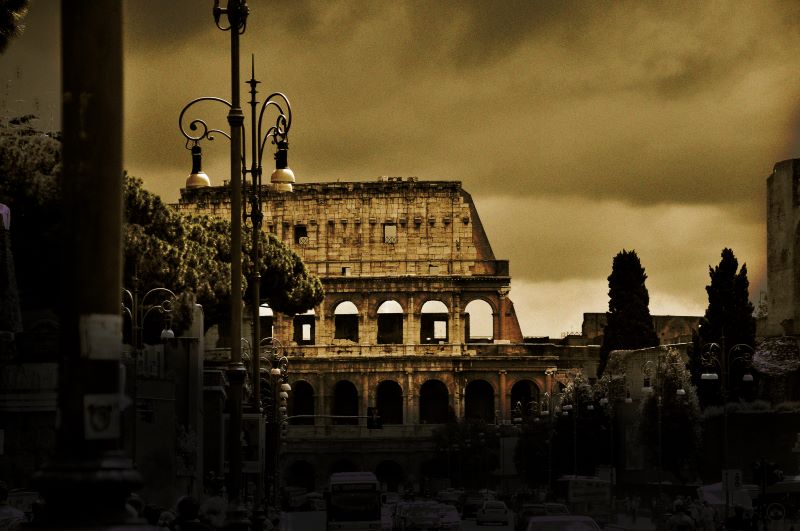The Nations: Gifts and Judgment
Sign up for a six month free
trial of The Stand Magazine!
(The first five blogs in this series can be found here, here, here, here, and here.)
Summary thus far: According to Acts 17:16-34, humanity consists of one race of people, descended from one man, Adam. However, God separated that one race into different ethnic groups. The word for these groups, often translated “nation,” is the Greek ethnos, from which we get the English “ethnicity.” This refers to a distinct people who share a culture. Most ethnicities form cultures that refuse to honor and glorify God. The first time this occurred, God separated humanity in the judgment at Babel (Genesis 11). However, the coming of Jesus Christ created a new ethnos, filled with redeemed people who are reforming the initial unity that existed before the judgment of Babel.
Many evangelicals have a truncated view of the work of Jesus Christ. They see redemption as being, if not solely, then primarily, about individual salvation. Certainly, for the person who has been “called … out of darkness into His marvelous light” (1 Peter 2:9), the salvation of his or her soul is the most glorious thing they’ve ever experienced.
The authority and power of Christ’s reign, however, extends far beyond the salvation of individual souls. It extends to reconciling all things to Himself, including the entirety of creation (Ephesians 1:10; Colossians 1:20). (The exceptions are unrepentant people and fallen angels.)
This is done via the reign of a true King, who crushes all that opposes Him and all that is contrary to the will of the Father. Jesus Christ will reign at the right hand of God until “He has abolished all rule and all authority and power. For He must reign until He has put all His enemies under His feet” (1 Corinthians 15:24-25). Through the resurrection, this process will eventually include that final enemy, death (v. 26).
The authority of the Messiah extends to His dealing with the nations – the various ethnos groups. This is clearly seen in Psalm 2. There the nations of the earth are shown to be in rebellion against God (vv. 1-3). The Messiah is enthroned in the city of God. The Father is portrayed as saying to the Son of God: “‘Ask of Me, and I will surely give the nations as Your inheritance, and the very ends of the earth as Your possession. You shall break them with a rod of iron, You shall shatter them like earthenware’” (vv. 8-9).
We must not look at this merely as a destructive judgment, although, as we’ll see, that will come one day. No, the Father gives the various ethnos groups to the Son “as Your inheritance.” Who would want ashes for an inheritance? Instead, the King is shattering rebellion and taming the nations to serve Him.
How is this done? Scripture grants us insights, not only into the power of God’s fiery judgments, but also into the gracious power of God’s love – through the gospel.
Many Christians are familiar with the New Testament passages concerning the Great Commission. However, the heart of God to reach the nations is seen in the Old Testament as well. In Isaiah 66:18-21, for example, God declares “the time is coming to gather all nations and tongues. And they shall come and see My glory.” How will they see? The Lord will send His people “to the distant coastlands that have neither heard My fame nor seen My glory. And they will declare My glory among the nations.”
What is fascinating, however, is that the passage then turns to a flowing of people from the fringes of the unbelieving world to the center of the redemptive universe – the city of God. These people are quite clearly members of pagan ethnos groups – such as “Tarshish, Put, Lud, Meshech, Tubal, and Javan” (v. 19). This is, I believe, a way of picturing the outworking of the Great Commission, as Christians bring pagans to God like an Old Testament grain offering.
Other passages picture the same thing, but some add an interesting twist. In Isaiah 60, for example, the city of God not only receives the inflow of redeemed people from the nations of the world, these ethnos groups are also bringing cultural things with them – as gifts!
There are gifts from “the abundance of the sea” (v. 5); “the wealth of the nations will come” (v. 5) via long caravans of camels, bringing “gold and frankincense” (v. 6); flocks will be gathered and sent (v. 7); and ships from far away bring “their silver and their gold with them” (v. 9).
There is more: “Foreigners will build up your walls” (v. 10); “The glory of Lebanon will come to you … to beautify the place of My sanctuary” (v. 13), indicating that the talents of these people will be used for God’s glory.
Since the activity of a city incorporates both commerce and politics, the city of God is never closed to those wishing to enter: “Your gates will be open continually; they will not be closed day or night, so that men may bring to you the wealth of the nations” (v. 11). Political leaders are also pictured as entering the city: “kings will minister to you … their kings led in procession” (v. 10-11).
These images have a clear parallel in Revelation 21, as John describes the New Jerusalem coming down from heaven: “The nations will walk by its light, and the kings of the earth will bring their glory into it. In the daytime (for there will be no night there) its gates will never be closed; and they will bring the glory and the honor of the nations into it” (vv. 24-26).
Is this so difficult to imagine? Do we think the only cultural expressions that will exist in the kingdom of heaven on earth will be Jewish? Nothing Japanese? Nothing French? Nothing Peruvian? Will the only musical style be that of ancient Israel? If Christians do all things to the glory of God, does it matter if those Christians are black or white – or that their offerings have a cultural style peculiar to their ethnos?
How glorious would it be that the God who partitioned mankind at Babel, due to humanistic pride and rebellion, would then gather, not only people from the varieties of ethnos groups that He created, but also their gifts? (For a fascinating look at this view, see When the Kings Come Marching In: Isaiah and the New Jerusalem, by Richard J. Mouw.)
I have no idea what cultural things will literally be present in the New Heavens and the New Earth. But it seems to me what the above passages are showing us is that the expansion of the kingdom of God to include Gentile people will also include Gentile culture.
Not everything, of course. Isaiah 60:6 makes clear that these gifts contain no wickedness, but are all things that “bear good news of the praises of the Lord” (Isaiah 60:6). John declares in Revelation 21:27, “nothing unclean, and no one who practices abomination and lying, shall ever come into [the New Jerusalem], but only those whose names are written in the Lamb’s book of life.”
We currently live in an age of ingathering, but at the end of this age, there is coming a day of judgment too – as Paul warned the men of Athens (Acts 17:30-31). Certainly, the fire of God’s judgment tests the quality of every individual’s work (Romans 2:5-8; 1 Corinthians 3:12-15). But that holy fire will test all the works of mankind – including the wickedness inherent in the various ethnos groups when the day of the Lord comes (2 Peter 3:7, 10-12).
However, now is the time for giving gifts to the King who reigns at the right hand of God. As Psalm 2 exhorts all nations and peoples:
Now therefore, O kings, show discernment; take warning, O judges of the earth. Worship the Lord with reverence and rejoice with trembling. Do homage to the Son, that He not become angry, and you perish in the way, for His wrath may soon be kindled. How blessed are all who take refuge in Him! (vv. 10-12).
Editor’s Note: A word from the writer – The remainder of my blogs this year will center around Christmas and New Year’s. Next year I will finish this current series on ethnicity by answering these questions: (1) Is it OK to love my country? (2) How should Christians treat others from a different ethnic background? (3) Are race relations in America like a bad marriage that is doomed to divorce?

Sign up for a free six-month trial of
The Stand Magazine!
Sign up for free to receive notable blogs delivered to your email weekly.


















